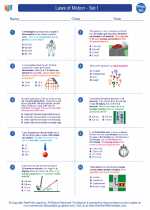Greek Civilization
Greek civilization, also known as Ancient Greece, was a period of cultural, political, and intellectual development that took place in the Greek mainland and islands from around 800 BCE to 146 BCE. It is often considered the birthplace of Western civilization and has had a profound influence on the development of art, philosophy, science, and politics.
Key Aspects of Greek Civilization
- Government and Politics: The Greeks developed the concept of democracy, where citizens had a direct say in decision-making. This form of government was practiced in city-states such as Athens.
- Art and Architecture: Greek art and architecture are characterized by their emphasis on balance, harmony, and proportion. The most famous examples include the Parthenon in Athens and the sculptures of the Acropolis.
- Philosophy and Science: Ancient Greek philosophers such as Socrates, Plato, and Aristotle made significant contributions to the fields of ethics, metaphysics, and logic. In science, Greek scholars laid the groundwork for modern astronomy, mathematics, and medicine.
- Theater and Literature: The Greeks are known for their theatrical performances, including tragedies and comedies. They also produced epic poems such as the Iliad and the Odyssey, attributed to Homer.
- Olympic Games: The ancient Olympic Games, held in Olympia, Greece, were a major cultural event that brought together athletes from various city-states to compete in sports such as running, wrestling, and chariot racing.
Study Guide
To gain a comprehensive understanding of Greek civilization, here are some key topics to study:
- Geography of Ancient Greece: Understand the physical geography of the region and its influence on the development of Greek city-states.
- City-States: Explore the political structure and societal organization of city-states such as Athens, Sparta, and Corinth.
- Mythology and Religion: Study the major Greek gods and goddesses, as well as the religious practices and rituals of the ancient Greeks.
- Democracy and Government: Learn about the principles of Athenian democracy and the role of citizens in decision-making.
- Greek Art and Architecture: Examine the characteristics of Greek art, including sculpture, pottery, and architectural styles.
- Philosophy and Science: Explore the ideas of prominent Greek philosophers and their contributions to fields such as ethics, metaphysics, and natural sciences.
- Theater and Literature: Understand the significance of Greek theater, the structure of plays, and the works of famous playwrights such as Sophocles and Euripides.
- Social Structure: Investigate the social classes and roles of citizens, slaves, and women in ancient Greek society.
- Legacy of Ancient Greece: Consider the lasting impact of Greek civilization on modern Western culture, including language, literature, and political thought.
Studying these topics will provide a solid foundation for understanding the rich and influential civilization of ancient Greece.
Feel free to explore these topics further and reach out if you have any specific questions!
[Greek Civilization] Related Worksheets and Study Guides:
.◂Physics Worksheets and Study Guides High School. Laws of Motion - Set I
Worksheet/Answer key Laws of Motion - Set I
Laws of Motion - Set I  Worksheet/Answer key
Worksheet/Answer key Laws of Motion - Set I
Laws of Motion - Set I  Worksheet/Answer key
Worksheet/Answer key Laws of Motion - Set I
Laws of Motion - Set I  Worksheet/Answer key
Worksheet/Answer key Laws of Motion - Set I
Laws of Motion - Set I 

 Worksheet/Answer key
Worksheet/Answer key
 Worksheet/Answer key
Worksheet/Answer key
 Worksheet/Answer key
Worksheet/Answer key

The resources above cover the following skills:
PHYSICAL SCIENCE (NGSS)
Energy
Students who demonstrate understanding can:
Develop and use models to illustrate that energy at the macroscopic scale can be accounted for as either motions of particles or energy stored in fields.